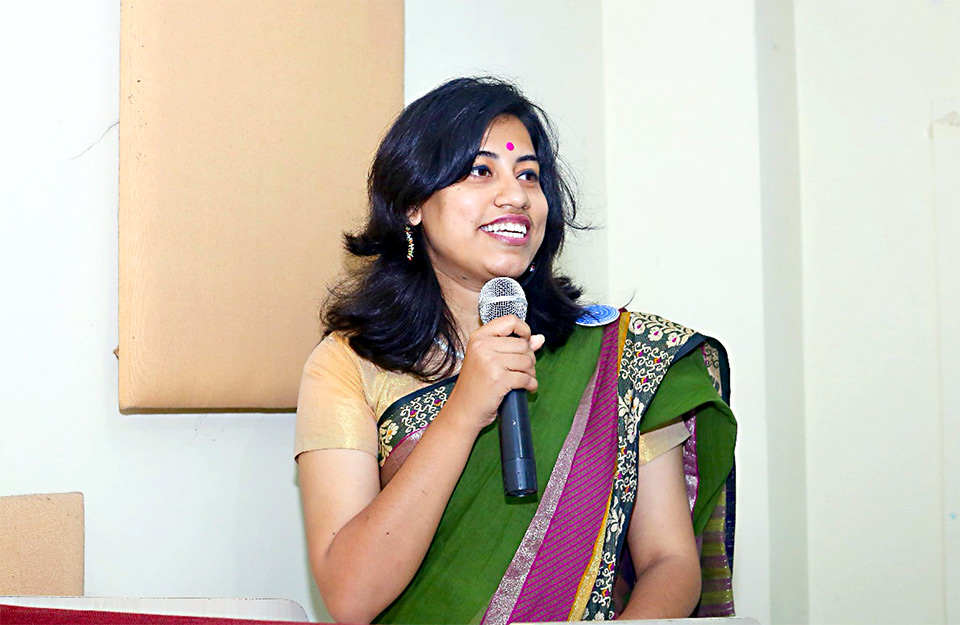From Where I Stand: Mahmuda Sultana Shorna
Mahmuda Sultana Shorna is the President of Women Peace Café (WPC) at Jatiya Kabi Kazi Nazrul Islam University (JKKNIU) in Mymensingh, Bangladesh. Since the COVID 19 pandemic hit Bangladesh, she has found innovative ways to keep spreading messages of peace while helping women in her community.Date:

The pandemic has completely transformed the ways we used to do things. Our Women Peace Café (WPC) work has been affected, everything has shifted to digital platforms, and the situations have changed at home.
As soon as the university closed, I had to move back home. Because of the health crises, the number of chores increased at home and we had to do more cleaning and sanitizing to remain safe. To share the burden of the household work, I created a distribution chart for me and my brothers to help out at home. At first, it was difficult to persuade my brothers, but now they have adapted well and help with several chores, such as cooking.
The COVID19 situation is also impacting the work done by WPC. We are not able to sell the products from our sustainable businesses that promote messages of peace and social cohesion. Therefore, we have to find other ways to help the community.
To help women who are suffering from the consequences of the pandemic, we are now raising funds from the community and distributing food and hygiene items to support women in vulnerable positions. Women who lost their jobs are facing economic hardships and women who are stuck at home with husbands who too have become unemployed, are increasingly falling victims of domestic violence. Through WPC funds, we have been able to help at least 50 vulnerable women by distributing essential goods to them. I have for example coordinated a donation of a sewing machine to a woman who could not feed her children after her husband lost his job. She was already skilled in sewing and the machine helped her to provide for her family.
During lockdown, the WPC meetings have moved online, and we are creating weekly online content to spread messages of peace during the crisis. We are taking our own initiative to learn freelancing from an expert so that we can learn new skills for the digital age.
Since the virus outbreak, I have seen a rise in fake news and misinformation related to COVID19. The misinformation is quickly being shared by many people. Before the pandemic, I did not know what I could do to stop the spread of fake news, but after attending a Digital Literacy Training led by UN Women, I have learned how to report fake news and misinformation when I see it.
I miss the personal interaction with my teachers, peers and fellow WPC members, but I am using technology to stay connected and learning to live my new normal.”
Mahmuda Sultana Shorna is pursuing her Master in English Language and Literature at Jatiya Kabi Kazi Nazrul Islam University (JKKNIU) in Mymensingh, Bangladesh and President of Women Peace Café at JKKNIU. Women Peace Café (a university-based platform of social entrepreneurs) was established in partnership with Brac University as a part of UN Women’s Empowered Women, Peaceful Communities programme to promote peace and social cohesion and prevent radicalization and violent extremism across Asia and the Pacific. The programme is generously supported by the Government of Japan. Her story relates to Sustainable Development Goal (SDG) 16, which aims to promote peaceful and inclusive societies, and SDG 5 on gender equality and women’s empowerment.